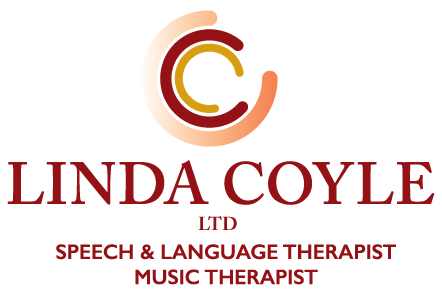Testimonials
Linda worked with my daughter for over two years and throughout this time Linda's input and support was invaluable. As well as Linda's own expertise she was able to recommend other supports available to us. When these other supports were available Linda understood our need to access these and when we were again without intervention Linda welcomed us back. Linda was instrumental in us accessing some of these supports and Linda's impact on our daughters future path cannot be under estimated. We are very grateful for her input. The only regret of moving on is that we will miss the view over Ballinglanna bay!
Anne, CorkMarch 2018
Linda has been my son E's Speech & Language Therapist for the past 2 years .I can never thank her enough for her patience, persistence and encouragement. She is SO SO SO VERY child friendly. I especially admired her uncanny ability to discuss E's speech delay with me (in his presence) without upsetting him, or causing him embarrassment. This was an enormous issue with previous therapists.She listened so genuinely to him in the sessions that he said to me after the first week "I like her cause i think she really likes me" Linda looks at the whole child physically, mentally and emotionally in order to fully understand the underlying speech issues. In Fact it was due entirely to Linda's observations that E. was eventually assessed and diagnosed with overall low muscle tone. Linda is approachable and honest, being so open to all methods of parenting makes her a truly non judgemental professional....rare to find today.She is the only professional we are sorry to be finished with.
Fiona O' MahonyParent
An excellent eye opener to the power and flexibility of the voice.
Siobhan BJanuary 2015
Excellent course. Extremely useful information. Very practical.I learned a lot of valuable yet simple tips to help me with my voice. Fun course. The time flew. I really enjoyed and learned a lot in a fun and enjoyable atmosphere. Thank you!
AnonJanuary 2015
My son aged 8 attended Linda for a communication disorder in Feb of this year. From the start Linda was very patient and understanding with him. She worked on building his self confidence and reducing his anxiety. The music therapy combined with language therapy seemed to relax him and he opened up more.
He enjoyed the sessions but was tired afterwards because ,without him knowing, Linda was working him hard.
Linda to date seems to be the only professional we have met who seems to "get" him and truly understand his difficulties. She has been a great advocate for him and I could not recommend her highly enough.
Her gentle approach and her ability to connect with people ,who otherwise have difficulty connecting with the world, are by far her strongest assets.
Tracy Q., BandonNovember 2013
Many thanks for your lecture and workshop last week in UL. I enjoyed it so much. The content was flexible and interesting, I got much information about my voice in a relatively relaxed atmosphere.
Rong, Student Music TherapistOctober 2013
Thanks so much for the holding the voice workshop. I found it really helpful and interesting. Working as a professional DJ I have already seen the benefits from doing the course. It has made me more aware of my voice and the relaxation exercises really help my voice and enable me to project my voice more clearly. Thanks again.
Paul, ClonakiltyApril 2013
I found Linda's workshop very enjoyable and informative. I receive a lot of great techniques which I will use in my singing. Thanks so much for a very inspiring workshop. I look forward to attending another one soon.
Michael, ClonakiltyApril 2013
Thank you very much for a great voice workshop last week. I really enjoyed understanding how the voice works and the importance of seeing it as part of an awareness of the whole body. - Plus there were many really useful tips for voice projection and public speaking that I am looking forward to using.
Bev, CorkApril 2013
I adopted a little Indian girl four years ago. When she started school with her friends she was doing fine. Now in second class she is finding things are getting a little bit harder. I took my little girl to Linda who did tremendous speech therapy with her and she came on so so well. She is more confident and is now asking for help which prior to this would not have asked but ploughed along. I am so grateful to Linda for the fantastic work she has done and helped us as a family to deal with everyday problems which were holding our little girl back. Would definitely recommend Linda.
N O'D2011
Linda is one of a kind. She gets the job done without pressure. You won’t find anyone as excellent as her. She makes working fun.
C.F.Aged 10
When I first started seeing Linda I had virtually no voice, due to years of abuse working in a club atmosphere in Greece. Working with Linda really helped my voice come back stronger than ever. She taught me many things and techniques , for example that everything in your body is connected to your voice and that it works as a unit (something I personally didn’t know). From week to week my voice improved and grew stronger. She gave me advice on things that would delay healing and advice on things that would be beneficial for it. I saw Linda at least once a week for 6 or 7 weeks and at my specialist’s appointment last week I was informed that everything looks healthy again and it’s all thanks to Linda. She taught me everything from everyday breathing techniques to yoga and becoming a calmer person.
A.S.
Previous
Next
